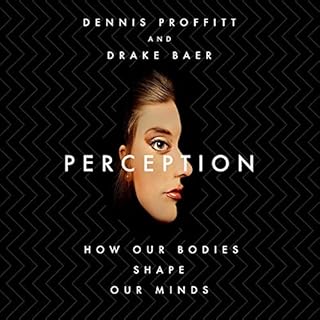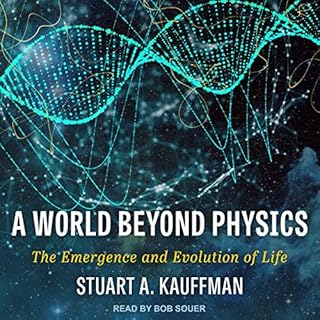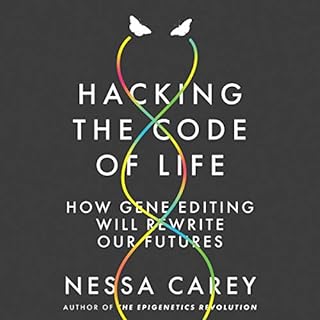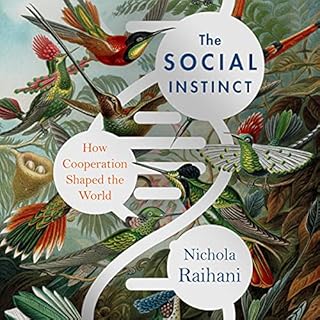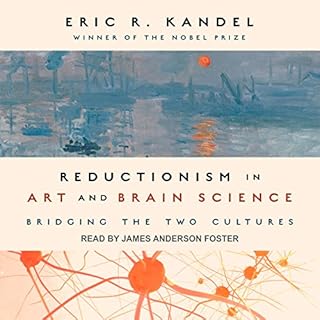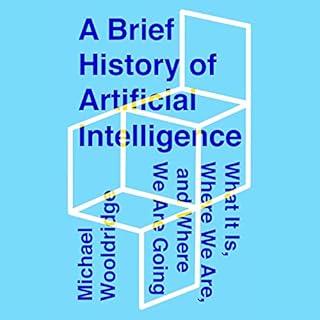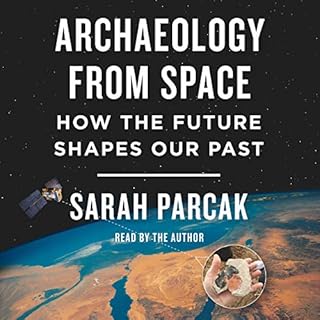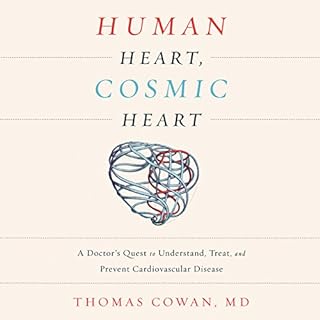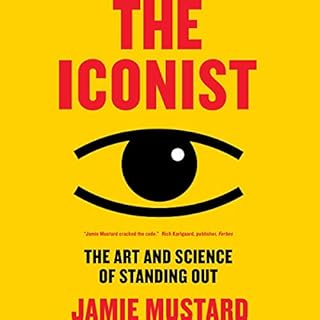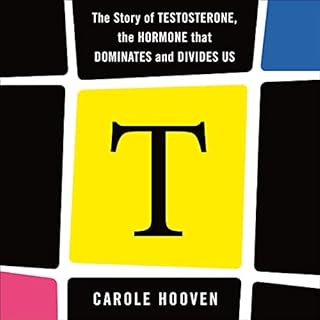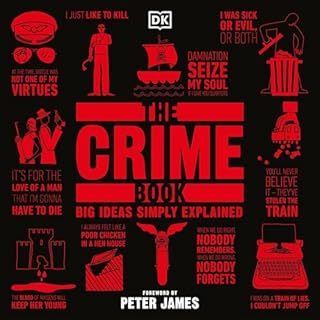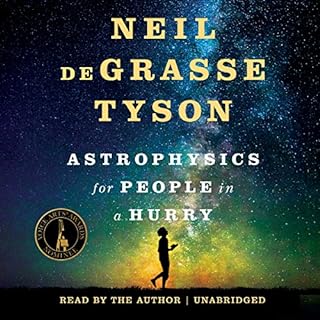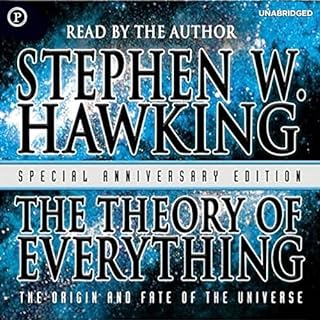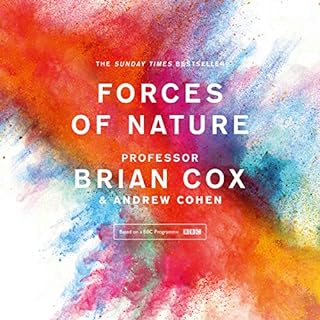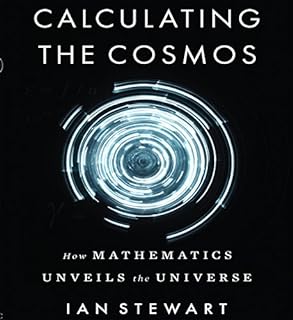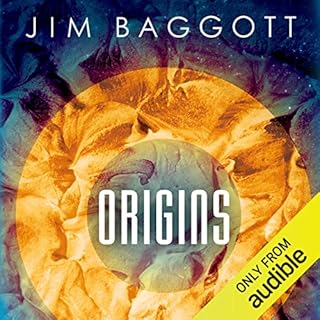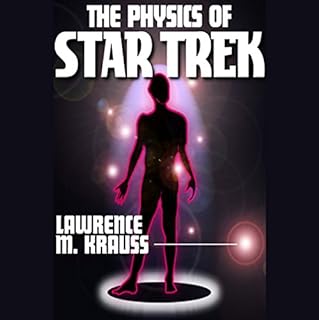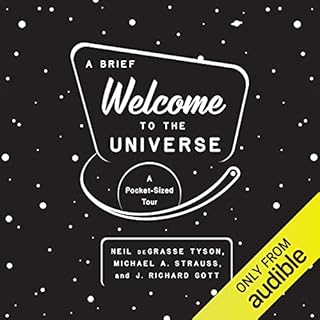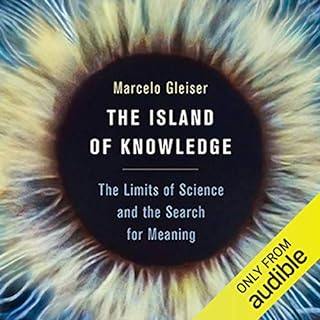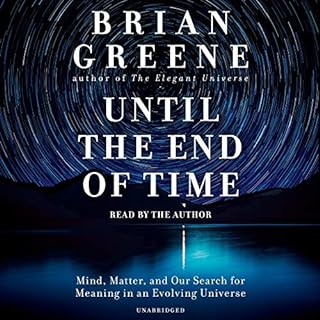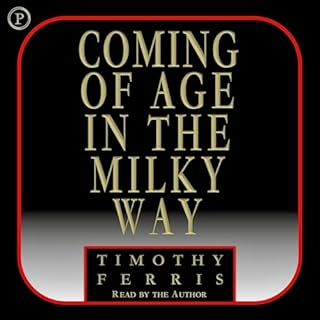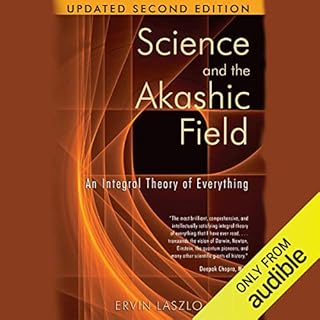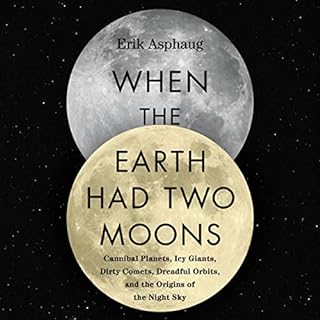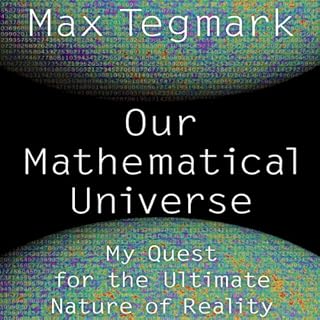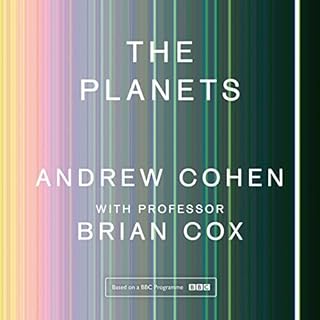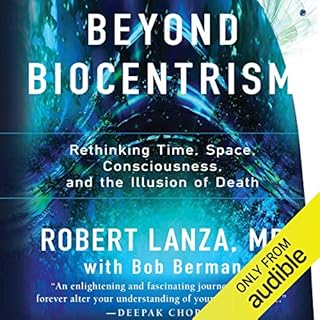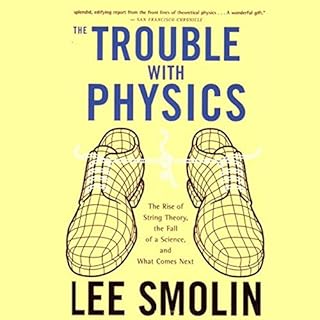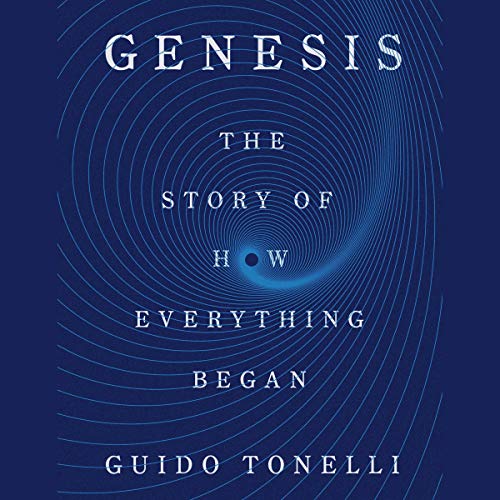
Genesis
The Story of How Everything Began
Failed to add items
Add to Cart failed.
Add to Wish List failed.
Remove from wishlist failed.
Adding to library failed
Follow podcast failed
Unfollow podcast failed
$0.99/mo first 3 months
 Prime members: New to Audible?
Prime members: New to Audible?Get 2 free audiobooks during trial.
Buy for $20.24
No default payment method selected.
We are sorry. We are not allowed to sell this product with the selected payment method
-
Narrated by:
-
Damian Lynch
About this listen
A breakout best seller in Italy, now available for American listeners for the first time, Genesis: The Story of How Everything Began is a short, humanistic tour of the origins of the universe, earth, and life - drawing on the latest discoveries in physics to explain the seven most significant moments in the creation of the cosmos.
Curiosity and wonderment about the origins of the universe are at the heart of our experience of the world. From Hesiod’s Chaos, described in his poem about the origins of the Greek gods, Theogony, to today’s mind-bending theories of the multiverse, humans have been consumed by the relentless pursuit of an answer to one awe inspiring question: What exactly happened during those first moments?
Guido Tonelli, the acclaimed, award-winning particle physicist and a central figure in the discovery of the Higgs boson (the “God particle”), reveals the extraordinary story of our genesis - from the origins of the universe, to the emergence of life on Earth, to the birth of human language with its power to describe the world. Evoking the seven days of biblical creation, Tonelli takes us on a brisk, lively tour through the evolution of our cosmos and considers the incredible challenges scientists face in exploring its mysteries. Genesis both explains the fundamental physics of our universe and marvels at the profound wonder of our existence.
A Macmillan Audio production from Farrar, Straus and Giroux
©2021 Guido Tonelli (P)2021 Macmillan AudioListeners also enjoyed...
-
A (Very) Short History of Life on Earth
- 4.6 Billion Years in 12 Pithy Chapters
- By: Henry Gee
- Narrated by: Henry Gee
- Length: 7 hrs and 40 mins
- Unabridged
-
Overall4.5 out of 5 stars 103
-
Performance4.5 out of 5 stars 88
-
Story5 out of 5 stars 88
In the beginning, Earth was an inhospitably alien place—in constant chemical flux, covered with churning seas, crafting its landscape through incessant volcanic eruptions. Amid all this tumult and disaster, life began. The earliest living things were no more than membranes stretched across microscopic gaps in rocks, where boiling hot jets of mineral-rich water gushed out from cracks in the ocean floor. In A (Very) Short History of Life on Earth, Henry Gee zips through the last 4.6 billion years with infectious enthusiasm and intellectual rigor.
-
1 out of 5 stars
-
incredibly annoying
- By A reader on 12-22-21
By: Henry Gee
-
Perception
- How Our Bodies Shape Our Minds
- By: Dennis Proffitt, Drake Baer
- Narrated by: Angela Dawe
- Length: 7 hrs and 13 mins
- Unabridged
-
Overall4.5 out of 5 stars 43
-
Performance5 out of 5 stars 39
-
Story4.5 out of 5 stars 39
Perception marries academic rigor with mainstream accessibility. The research presented and the personalities profiled will show what it means to not only have, but be, your unique human body. The positive ramifications of viewing ourselves from this embodied perspective include greater athletic, academic, and professional achievement, more nourishing relationships, and greater personal well-being. The better we can understand what our bodies are - what they excel at, what they need, what they must avoid - the better we can live our lives.
-
5 out of 5 stars
-
The body-mind connection well explained
- By Lucy A. Pithecus on 12-11-22
By: Dennis Proffitt, and others
-
A World Beyond Physics
- The Emergence and Evolution of Life
- By: Stuart A. Kauffman
- Narrated by: Bob Souer
- Length: 3 hrs and 44 mins
- Unabridged
-
Overall4.5 out of 5 stars 68
-
Performance4.5 out of 5 stars 57
-
Story4.5 out of 5 stars 58
Among the estimated 100 billion solar systems in the known universe, evolving life is surely abundant. That evolution is a process of "becoming" in each case. Since Newton, we have turned to physics to assess reality. But physics alone cannot tell us where we came from, how we arrived, and why our world has evolved past the point of unicellular organisms to an extremely complex biosphere.
-
1 out of 5 stars
-
Bleh!!
- By PS on 11-22-19
-
Hacking the Code of Life
- How Gene Editing Will Rewrite Our Futures
- By: Nessa Carey
- Narrated by: Karen Cass
- Length: 4 hrs and 41 mins
- Unabridged
-
Overall4.5 out of 5 stars 70
-
Performance4.5 out of 5 stars 62
-
Story4.5 out of 5 stars 62
Just 45 years ago, the age of gene modification was born. Researchers could create glow-in-the-dark mice, farmyard animals producing drugs in their milk, and vitamin-enhanced rice that could prevent half a million people going blind every year. But now GM is rapidly being supplanted by a new system called CRISPR or "gene editing". Using this approach, scientists can manipulate the genes of almost any organism with a degree of precision, ease and speed that we could only dream of ten years ago.
-
4 out of 5 stars
-
Decent Overview. Could lose sarcasm.
- By A. Toomey on 06-18-20
By: Nessa Carey
-
The End of Everything
- (Astrophysically Speaking)
- By: Katie Mack
- Narrated by: Gabra Zackman, Katie Mack
- Length: 6 hrs and 21 mins
- Unabridged
-
Overall4.5 out of 5 stars 951
-
Performance4.5 out of 5 stars 801
-
Story4.5 out of 5 stars 797
We know the universe had a beginning. With the Big Bang, it expanded from a state of unimaginable density to an all-encompassing cosmic fireball to a simmering fluid of matter and energy, laying down the seeds for everything from black holes to one rocky planet orbiting a star near the edge of a spiral galaxy that happened to develop life as we know it. But what happens to the universe at the end of the story? And what does it mean for us now?
-
5 out of 5 stars
-
My New Favorite!
- By Hannah Crazyhawk on 08-16-20
By: Katie Mack
-
The Social Instinct
- How Cooperation Shaped the World
- By: Nichola Raihani
- Narrated by: Nichola Raihani
- Length: 9 hrs and 41 mins
- Unabridged
-
Overall4.5 out of 5 stars 26
-
Performance5 out of 5 stars 18
-
Story4.5 out of 5 stars 18
Cooperation is the means by which life arose in the first place. It’s how we progressed through scale and complexity, from free-floating strands of genetic material, to nation states. But given what we know about the mechanisms of evolution, cooperation is also something of a puzzle. How does cooperation begin, when on a Darwinian level, all that the genes in your body care about is being passed on to the next generation? A biologist by training, Raihani looks at where and how collaborative behavior emerges throughout the animal kingdom, and what problems it solves.
-
5 out of 5 stars
-
Compelling citations with a lovely voice
- By AvidGemini44 on 12-30-22
By: Nichola Raihani
-
A (Very) Short History of Life on Earth
- 4.6 Billion Years in 12 Pithy Chapters
- By: Henry Gee
- Narrated by: Henry Gee
- Length: 7 hrs and 40 mins
- Unabridged
-
Overall4.5 out of 5 stars 103
-
Performance4.5 out of 5 stars 88
-
Story5 out of 5 stars 88
In the beginning, Earth was an inhospitably alien place—in constant chemical flux, covered with churning seas, crafting its landscape through incessant volcanic eruptions. Amid all this tumult and disaster, life began. The earliest living things were no more than membranes stretched across microscopic gaps in rocks, where boiling hot jets of mineral-rich water gushed out from cracks in the ocean floor. In A (Very) Short History of Life on Earth, Henry Gee zips through the last 4.6 billion years with infectious enthusiasm and intellectual rigor.
-
1 out of 5 stars
-
incredibly annoying
- By A reader on 12-22-21
By: Henry Gee
-
Perception
- How Our Bodies Shape Our Minds
- By: Dennis Proffitt, Drake Baer
- Narrated by: Angela Dawe
- Length: 7 hrs and 13 mins
- Unabridged
-
Overall4.5 out of 5 stars 43
-
Performance5 out of 5 stars 39
-
Story4.5 out of 5 stars 39
Perception marries academic rigor with mainstream accessibility. The research presented and the personalities profiled will show what it means to not only have, but be, your unique human body. The positive ramifications of viewing ourselves from this embodied perspective include greater athletic, academic, and professional achievement, more nourishing relationships, and greater personal well-being. The better we can understand what our bodies are - what they excel at, what they need, what they must avoid - the better we can live our lives.
-
5 out of 5 stars
-
The body-mind connection well explained
- By Lucy A. Pithecus on 12-11-22
By: Dennis Proffitt, and others
-
A World Beyond Physics
- The Emergence and Evolution of Life
- By: Stuart A. Kauffman
- Narrated by: Bob Souer
- Length: 3 hrs and 44 mins
- Unabridged
-
Overall4.5 out of 5 stars 68
-
Performance4.5 out of 5 stars 57
-
Story4.5 out of 5 stars 58
Among the estimated 100 billion solar systems in the known universe, evolving life is surely abundant. That evolution is a process of "becoming" in each case. Since Newton, we have turned to physics to assess reality. But physics alone cannot tell us where we came from, how we arrived, and why our world has evolved past the point of unicellular organisms to an extremely complex biosphere.
-
1 out of 5 stars
-
Bleh!!
- By PS on 11-22-19
-
Hacking the Code of Life
- How Gene Editing Will Rewrite Our Futures
- By: Nessa Carey
- Narrated by: Karen Cass
- Length: 4 hrs and 41 mins
- Unabridged
-
Overall4.5 out of 5 stars 70
-
Performance4.5 out of 5 stars 62
-
Story4.5 out of 5 stars 62
Just 45 years ago, the age of gene modification was born. Researchers could create glow-in-the-dark mice, farmyard animals producing drugs in their milk, and vitamin-enhanced rice that could prevent half a million people going blind every year. But now GM is rapidly being supplanted by a new system called CRISPR or "gene editing". Using this approach, scientists can manipulate the genes of almost any organism with a degree of precision, ease and speed that we could only dream of ten years ago.
-
4 out of 5 stars
-
Decent Overview. Could lose sarcasm.
- By A. Toomey on 06-18-20
By: Nessa Carey
-
The End of Everything
- (Astrophysically Speaking)
- By: Katie Mack
- Narrated by: Gabra Zackman, Katie Mack
- Length: 6 hrs and 21 mins
- Unabridged
-
Overall4.5 out of 5 stars 951
-
Performance4.5 out of 5 stars 801
-
Story4.5 out of 5 stars 797
We know the universe had a beginning. With the Big Bang, it expanded from a state of unimaginable density to an all-encompassing cosmic fireball to a simmering fluid of matter and energy, laying down the seeds for everything from black holes to one rocky planet orbiting a star near the edge of a spiral galaxy that happened to develop life as we know it. But what happens to the universe at the end of the story? And what does it mean for us now?
-
5 out of 5 stars
-
My New Favorite!
- By Hannah Crazyhawk on 08-16-20
By: Katie Mack
-
The Social Instinct
- How Cooperation Shaped the World
- By: Nichola Raihani
- Narrated by: Nichola Raihani
- Length: 9 hrs and 41 mins
- Unabridged
-
Overall4.5 out of 5 stars 26
-
Performance5 out of 5 stars 18
-
Story4.5 out of 5 stars 18
Cooperation is the means by which life arose in the first place. It’s how we progressed through scale and complexity, from free-floating strands of genetic material, to nation states. But given what we know about the mechanisms of evolution, cooperation is also something of a puzzle. How does cooperation begin, when on a Darwinian level, all that the genes in your body care about is being passed on to the next generation? A biologist by training, Raihani looks at where and how collaborative behavior emerges throughout the animal kingdom, and what problems it solves.
-
5 out of 5 stars
-
Compelling citations with a lovely voice
- By AvidGemini44 on 12-30-22
By: Nichola Raihani
-
Reductionism in Art and Brain Science
- Bridging the Two Cultures
- By: Eric R. Kandel
- Narrated by: James Anderson Foster
- Length: 4 hrs and 1 min
- Unabridged
-
Overall4.5 out of 5 stars 116
-
Performance4.5 out of 5 stars 95
-
Story4.5 out of 5 stars 95
Are art and science separated by an unbridgeable divide? Can they find common ground? In this book, neuroscientist Eric R. Kandel, whose remarkable scientific career and deep interest in art give him a unique perspective, demonstrates how science can inform the way we experience a work of art and seek to understand its meaning. Kandel illustrates how reductionism - the distillation of larger scientific or aesthetic concepts into smaller, more tractable components - has been used by scientists and artists alike to pursue their respective truths.
-
2 out of 5 stars
-
Nothing new or original
- By clifford on 01-13-20
By: Eric R. Kandel
-
Underground
- A Human History of the Worlds Beneath Our Feet
- By: Will Hunt
- Narrated by: Will Hunt
- Length: 6 hrs and 41 mins
- Unabridged
-
Overall4 out of 5 stars 191
-
Performance4 out of 5 stars 167
-
Story4 out of 5 stars 166
A panoramic investigation of the subterranean landscape, from sacred caves and derelict subway stations to nuclear bunkers and ancient underground cities - an exploration of the history, science, architecture, and mythology of the worlds beneath our feet.
-
4 out of 5 stars
-
An interesting unearthing of some awesome spaces
- By Garry on 02-23-19
By: Will Hunt
-
A Brief History of Artificial Intelligence
- What It Is, Where We Are, and Where We Are Going
- By: Michael Wooldridge
- Narrated by: Glen McCready
- Length: 8 hrs and 8 mins
- Unabridged
-
Overall4.5 out of 5 stars 81
-
Performance4.5 out of 5 stars 58
-
Story4.5 out of 5 stars 58
From Oxford's leading AI researcher comes a fun and accessible tour through the history and future of one of the most cutting edge and misunderstood field in science: artificial intelligence.
-
3 out of 5 stars
-
very basic.
- By Placeholder on 11-11-21
-
Archaeology from Space
- How the Future Shapes Our Past
- By: Sarah Parcak
- Narrated by: Sarah Parcak
- Length: 8 hrs and 39 mins
- Unabridged
-
Overall4.5 out of 5 stars 101
-
Performance4.5 out of 5 stars 87
-
Story4.5 out of 5 stars 87
In Archaeology from Space, Sarah Parcak shows the evolution, major discoveries, and future potential of the young field of satellite archaeology. From surprise advancements after the declassification of spy photography, to a new map of the mythical Egyptian city of Tanis, she shares her field's biggest discoveries, revealing why space archaeology is not only exciting, but urgently essential to the preservation of the world's ancient treasures.
-
4 out of 5 stars
-
So excited
- By Michael G Bell on 05-15-21
By: Sarah Parcak
-
Human Heart, Cosmic Heart
- A Doctor's Quest to Understand, Treat, and Prevent Cardiovascular Disease
- By: Dr. Thomas Cowan
- Narrated by: David Drummond
- Length: 4 hrs and 18 mins
- Unabridged
-
Overall5 out of 5 stars 285
-
Performance4.5 out of 5 stars 247
-
Story4.5 out of 5 stars 245
While serving with the Peace Corps in Swaziland, Thomas Cowan encountered the work of Rudolf Steiner and Weston A. Price - two men whose ideas would fascinate and challenge him for decades to come. Both drawn to the art of healing and repelled by the way medicine was - and continues to be - practiced in the United States, Cowan returned from Swaziland, went to medical school, and established a practice.
-
1 out of 5 stars
-
Worthless
- By Martin on 11-04-16
By: Dr. Thomas Cowan
-
A History of the Human Brain
- From the Sea Sponge to CRISPR, How Our Brain Evolved
- By: Bret Stetka
- Narrated by: Sean Pratt
- Length: 7 hrs and 54 mins
- Unabridged
-
Overall4.5 out of 5 stars 125
-
Performance4.5 out of 5 stars 92
-
Story4.5 out of 5 stars 92
Just over 125,000 years ago, humanity was going extinct until a dramatic shift occurred—Homo sapiens started tracking the tides in order to eat the nearby oysters. Before long, they’d pulled themselves back from the brink of extinction. The human brain, and its evolutionary journey, is unlike anything else in history. In A History of the Human Brain, Bret Stetka takes listeners through that far-reaching journey. He also tackles the question of where the brain will take us next, exploring the burgeoning concepts of epigenetics and new technologies like CRISPR.
-
5 out of 5 stars
-
Fascinating survey of the evolution of the human brain
- By Cosmos on 03-30-21
By: Bret Stetka
-
Seven and a Half Lessons About the Brain
- By: Lisa Feldman Barrett
- Narrated by: Lisa Feldman Barrett
- Length: 3 hrs and 53 mins
- Unabridged
-
Overall4.5 out of 5 stars 752
-
Performance4.5 out of 5 stars 623
-
Story4.5 out of 5 stars 613
Have you ever wondered why you have a brain? Let renowned neuroscientist Lisa Feldman Barrett demystify that big gray blob between your ears. In seven short essays (plus a bite-sized story about how brains evolved), this slim, entertaining, and accessible collection reveals mind-expanding lessons from the front lines of neuroscience research. You'll learn where brains came from, how they're structured (and why it matters), and how yours works in tandem with other brains to create everything you experience.
-
3 out of 5 stars
-
slow reader & little bit of a Wokie
- By darren on 06-01-21
-
The Iconist
- The Art and Science of Standing Out
- By: Jamie Mustard
- Narrated by: Jamie Mustard
- Length: 5 hrs and 39 mins
- Unabridged
-
Overall4 out of 5 stars 36
-
Performance4.5 out of 5 stars 30
-
Story4 out of 5 stars 31
With the rise of digital media and advertising, a constant barrage of information makes it nearly impossible to be seen and heard. In The Iconist, branding and design strategist Jamie Mustard shows you how individuals, organizations, and brands can break through the noise. The secret to standing out lies in creating content that the desired audience will “lock” onto and remember with little effort - simple, bold ideas that can be immediately understood.
-
3 out of 5 stars
-
Decent but fluffy
- By Travis Gilbert on 11-28-21
By: Jamie Mustard
-
T
- The Story of Testosterone, the Hormone That Dominates and Divides Us
- By: Carole Hooven
- Narrated by: Rachel Perry
- Length: 10 hrs and 15 mins
- Unabridged
-
Overall4.5 out of 5 stars 291
-
Performance5 out of 5 stars 242
-
Story4.5 out of 5 stars 241
Through riveting personal stories and the latest research, Harvard evolutionary biologist Carole Hooven shows how testosterone drives the behavior of the sexes apart and how understanding the science behind this hormone is empowering for all.
-
3 out of 5 stars
-
I wanted more science
- By L on 09-04-21
By: Carole Hooven
-
The End of Bias: A Beginning
- The Science and Practice of Overcoming Unconscious Bias
- By: Jessica Nordell
- Narrated by: Jessica Nordell
- Length: 11 hrs and 43 mins
- Unabridged
-
Overall5 out of 5 stars 79
-
Performance5 out of 5 stars 71
-
Story5 out of 5 stars 71
Unconscious bias: persistent, unintentional prejudiced behavior that clashes with our consciously held beliefs. We know that it exists, to corrosive and even lethal effect. We see it in medicine, the workplace, education, policing, and beyond. But when it comes to uprooting our prejudices, we still have far to go. With nuance, compassion, and ten years' immersion in the topic, Jessica Nordell weaves gripping stories with scientific research to reveal how minds, hearts, and behaviors change.
-
5 out of 5 stars
-
An awesome book about understanding unconscious bias and how to end its powerful grip on our behavior.
- By Jose R. Nino on 10-10-21
By: Jessica Nordell
-
The Crime Book
- Big Ideas Simply Explained
- By: DK, Jonathan Keeble
- Narrated by: Peter James
- Length: 13 hrs and 48 mins
- Unabridged
-
Overall3.5 out of 5 stars 2
-
Performance4 out of 5 stars 2
-
Story3.5 out of 5 stars 2
From Jack the Ripper to the modern-day drug cartels, discover the most notorious crimes and criminals in history. With a foreword written and narrated by best-selling crime author Peter James, The Crime Book explores over 100 crimes and examines the science, psychology and sociology of criminal behaviour. Hear the gory details of each crime and how they were solved, with renowned quotes and detailed criminal profiles letting you delve into the criminal mind.
By: DK, and others
-
Astrophysics for People in a Hurry
- By: Neil deGrasse Tyson
- Narrated by: Neil deGrasse Tyson
- Length: 3 hrs and 41 mins
- Unabridged
-
Overall4.5 out of 5 stars 38,090
-
Performance5 out of 5 stars 33,406
-
Story4.5 out of 5 stars 33,124
What is the nature of space and time? How do we fit within the universe? How does the universe fit within us? There's no better guide through these mind-expanding questions than acclaimed astrophysicist and best-selling author Neil deGrasse Tyson. But today, few of us have time to contemplate the cosmos. So Tyson brings the universe down to Earth succinctly and clearly, with sparkling wit, in digestible chapters consumable anytime and anywhere in your busy day.
-
2 out of 5 stars
-
Disappointing - not much physics
- By Rob Hahn on 07-15-17
Related to this topic
-
The Theory of Everything
- The Origin and Fate of the Universe
- By: Stephen Hawking
- Narrated by: Michael York
- Length: 3 hrs and 30 mins
- Unabridged
-
Overall4.5 out of 5 stars 1,125
-
Performance4.5 out of 5 stars 925
-
Story4.5 out of 5 stars 917
In physicist Stephen Hawking's brilliant opus, A Brief History of Time, he presented us with a bold new look at our universe, how it began, and how our old views of physics and tired theories about the creation of the universe were no longer relevant. In other words, Hawking gave us a new look at our world, our universe, and ourselves. Now, Hawking presents an even more comprehensive look at our universe, its creation, and how we see ourselves within it.
-
5 out of 5 stars
-
Shares a lot of text with a Brief History of Time.
- By Roc Myers on 01-07-15
By: Stephen Hawking
-
Forces of Nature
- By: Professor Brian Cox, Andrew Cohen
- Narrated by: Samuel West
- Length: 7 hrs and 15 mins
- Unabridged
-
Overall4.5 out of 5 stars 490
-
Performance5 out of 5 stars 438
-
Story4.5 out of 5 stars 432
Professor Brian Cox uncovers some of the most extraordinary natural events on Earth and in the universe and beyond. From the immensity of the universe and the roundness of Earth to the form of every single snowflake, the forces of nature shape everything we see. Pushed to extremes, the results are astonishing. In seeking to understand the everyday world, the colours, structure, behaviour and history of our home, we develop the knowledge and techniques necessary to step beyond the everyday.
-
4 out of 5 stars
-
Complicated in its simplicity
- By Philomath on 06-13-17
By: Professor Brian Cox, and others
-
Calculating the Cosmos
- How Mathematics Unveils the Universe
- By: Ian Stewart
- Narrated by: Dana Hickox
- Length: 12 hrs and 39 mins
- Unabridged
-
Overall4.5 out of 5 stars 118
-
Performance3.5 out of 5 stars 111
-
Story4.5 out of 5 stars 107
In Calculating the Cosmos, Ian Stewart presents an exhilarating guide to the cosmos, from our solar system to the entire universe. He describes the architecture of space and time, dark matter and dark energy, how galaxies form, why stars implode, how everything began, and how it's all going to end. He considers parallel universes, the fine-tuning of the cosmos for life, what forms extraterrestrial life might take, and the likelihood of life on Earth being snuffed out by an asteroid.
-
2 out of 5 stars
-
Crank alert: rejects modern cosmology
- By James Weisner on 03-20-17
By: Ian Stewart
-
Origins
- The Scientific Story of Creation
- By: Jim Baggott
- Narrated by: Neil Scott-Barbour
- Length: 16 hrs and 47 mins
- Unabridged
-
Overall4.5 out of 5 stars 71
-
Performance4 out of 5 stars 60
-
Story4.5 out of 5 stars 57
What is the nature of the material world? How does it work? What is the universe and how was it formed? What is life? Where do we come from and how did we evolve? How and why do we think? What does it mean to be human? How do we know? There are many different versions of our creation story. This book tells the version according to modern science. It is a unique account, starting at the Big Bang and travelling right up to the emergence of humans as conscious intelligent beings, 13.8 billion years later.
-
4 out of 5 stars
-
Interesting book, but WOW, the narrator ...
- By UH on 01-10-17
By: Jim Baggott
-
The Physics of Star Trek
- By: Lawrence M. Krauss
- Narrated by: Larry McKeever
- Length: 6 hrs and 40 mins
- Unabridged
-
Overall4 out of 5 stars 407
-
Performance4 out of 5 stars 264
-
Story4.5 out of 5 stars 262
What actually happens when the words, "beam me up, Scottie" are uttered? What "warps" when something travels at warp speed? Internationally renowned theoretical physicist and educator Lawrence M. Krauss provides matter-of-fact scientific explanations of the physics of Star Trek in this highly creative and informative guide for both the devoted Trekkie and the physics novice.
-
3 out of 5 stars
-
Interesting Book. Quite Technical
- By Christopher B. on 12-07-04
-
A Brief Welcome to the Universe
- A Pocket-Sized Tour
- By: Neil deGrasse Tyson, Michael A. Strauss, J. Richard Gott
- Narrated by: Neil Hellegers
- Length: 4 hrs and 7 mins
- Unabridged
-
Overall4.5 out of 5 stars 68
-
Performance4.5 out of 5 stars 53
-
Story4.5 out of 5 stars 53
A Brief Welcome to the Universe offers a breathtaking tour of the cosmos, from planets, stars, and galaxies to black holes and time loops. Best-selling authors and acclaimed astrophysicists Neil deGrasse Tyson, Michael A. Strauss, and J. Richard Gott take listeners on an unforgettable journey of exploration to reveal how our universe actually works. Propelling you from our home solar system to the outermost frontiers of space, this book builds your cosmic insight and perspective through a marvelously entertaining narrative.
-
5 out of 5 stars
-
A brief welcome for everyone
- By Ashley F on 08-24-24
By: Neil deGrasse Tyson, and others
-
The Theory of Everything
- The Origin and Fate of the Universe
- By: Stephen Hawking
- Narrated by: Michael York
- Length: 3 hrs and 30 mins
- Unabridged
-
Overall4.5 out of 5 stars 1,125
-
Performance4.5 out of 5 stars 925
-
Story4.5 out of 5 stars 917
In physicist Stephen Hawking's brilliant opus, A Brief History of Time, he presented us with a bold new look at our universe, how it began, and how our old views of physics and tired theories about the creation of the universe were no longer relevant. In other words, Hawking gave us a new look at our world, our universe, and ourselves. Now, Hawking presents an even more comprehensive look at our universe, its creation, and how we see ourselves within it.
-
5 out of 5 stars
-
Shares a lot of text with a Brief History of Time.
- By Roc Myers on 01-07-15
By: Stephen Hawking
-
Forces of Nature
- By: Professor Brian Cox, Andrew Cohen
- Narrated by: Samuel West
- Length: 7 hrs and 15 mins
- Unabridged
-
Overall4.5 out of 5 stars 490
-
Performance5 out of 5 stars 438
-
Story4.5 out of 5 stars 432
Professor Brian Cox uncovers some of the most extraordinary natural events on Earth and in the universe and beyond. From the immensity of the universe and the roundness of Earth to the form of every single snowflake, the forces of nature shape everything we see. Pushed to extremes, the results are astonishing. In seeking to understand the everyday world, the colours, structure, behaviour and history of our home, we develop the knowledge and techniques necessary to step beyond the everyday.
-
4 out of 5 stars
-
Complicated in its simplicity
- By Philomath on 06-13-17
By: Professor Brian Cox, and others
-
Calculating the Cosmos
- How Mathematics Unveils the Universe
- By: Ian Stewart
- Narrated by: Dana Hickox
- Length: 12 hrs and 39 mins
- Unabridged
-
Overall4.5 out of 5 stars 118
-
Performance3.5 out of 5 stars 111
-
Story4.5 out of 5 stars 107
In Calculating the Cosmos, Ian Stewart presents an exhilarating guide to the cosmos, from our solar system to the entire universe. He describes the architecture of space and time, dark matter and dark energy, how galaxies form, why stars implode, how everything began, and how it's all going to end. He considers parallel universes, the fine-tuning of the cosmos for life, what forms extraterrestrial life might take, and the likelihood of life on Earth being snuffed out by an asteroid.
-
2 out of 5 stars
-
Crank alert: rejects modern cosmology
- By James Weisner on 03-20-17
By: Ian Stewart
-
Origins
- The Scientific Story of Creation
- By: Jim Baggott
- Narrated by: Neil Scott-Barbour
- Length: 16 hrs and 47 mins
- Unabridged
-
Overall4.5 out of 5 stars 71
-
Performance4 out of 5 stars 60
-
Story4.5 out of 5 stars 57
What is the nature of the material world? How does it work? What is the universe and how was it formed? What is life? Where do we come from and how did we evolve? How and why do we think? What does it mean to be human? How do we know? There are many different versions of our creation story. This book tells the version according to modern science. It is a unique account, starting at the Big Bang and travelling right up to the emergence of humans as conscious intelligent beings, 13.8 billion years later.
-
4 out of 5 stars
-
Interesting book, but WOW, the narrator ...
- By UH on 01-10-17
By: Jim Baggott
-
The Physics of Star Trek
- By: Lawrence M. Krauss
- Narrated by: Larry McKeever
- Length: 6 hrs and 40 mins
- Unabridged
-
Overall4 out of 5 stars 407
-
Performance4 out of 5 stars 264
-
Story4.5 out of 5 stars 262
What actually happens when the words, "beam me up, Scottie" are uttered? What "warps" when something travels at warp speed? Internationally renowned theoretical physicist and educator Lawrence M. Krauss provides matter-of-fact scientific explanations of the physics of Star Trek in this highly creative and informative guide for both the devoted Trekkie and the physics novice.
-
3 out of 5 stars
-
Interesting Book. Quite Technical
- By Christopher B. on 12-07-04
-
A Brief Welcome to the Universe
- A Pocket-Sized Tour
- By: Neil deGrasse Tyson, Michael A. Strauss, J. Richard Gott
- Narrated by: Neil Hellegers
- Length: 4 hrs and 7 mins
- Unabridged
-
Overall4.5 out of 5 stars 68
-
Performance4.5 out of 5 stars 53
-
Story4.5 out of 5 stars 53
A Brief Welcome to the Universe offers a breathtaking tour of the cosmos, from planets, stars, and galaxies to black holes and time loops. Best-selling authors and acclaimed astrophysicists Neil deGrasse Tyson, Michael A. Strauss, and J. Richard Gott take listeners on an unforgettable journey of exploration to reveal how our universe actually works. Propelling you from our home solar system to the outermost frontiers of space, this book builds your cosmic insight and perspective through a marvelously entertaining narrative.
-
5 out of 5 stars
-
A brief welcome for everyone
- By Ashley F on 08-24-24
By: Neil deGrasse Tyson, and others
-
The Island of Knowledge
- The Limits of Science and the Search for Meaning
- By: Marcelo Gleiser
- Narrated by: William Neenan
- Length: 10 hrs and 33 mins
- Unabridged
-
Overall4 out of 5 stars 552
-
Performance4.5 out of 5 stars 488
-
Story4 out of 5 stars 486
How much can we know about the world? In this audiobook physicist Marcelo Gleiser traces our search for answers to the most fundamental questions of existence, the origin of the universe, the nature of reality, and the limits of knowledge. In so doing he reaches a provocative conclusion: Science, like religion, is fundamentally limited as a tool for understanding the world. As science and its philosophical interpretations advance, we face the unsettling recognition of how much we don't know.
-
4 out of 5 stars
-
Island of knowledge
- By Joshua Kring on 07-26-15
By: Marcelo Gleiser
-
The World According to Physics
- By: Jim Al-Khalili
- Narrated by: Jim Al-Khalili
- Length: 6 hrs and 35 mins
- Unabridged
-
Overall4.5 out of 5 stars 106
-
Performance4.5 out of 5 stars 95
-
Story4.5 out of 5 stars 95
Shining a light on the most profound insights revealed by modern physics, Jim Al-Khalili invites us all to understand what this crucially important science tells us about the universe and the nature of reality itself. Al-Khalili begins by introducing the fundamental concepts of space, time, energy, and matter, and then describes the three pillars of modern physics - quantum theory, relativity, and thermodynamics - showing how all three must come together if we are ever to have a full understanding of reality.
-
5 out of 5 stars
-
excellent book
- By Anonymous User on 05-10-21
By: Jim Al-Khalili
-
The Cosmic Cocktail
- Three Parts Dark Matter
- By: Katherine Freese
- Narrated by: Tamara Marston
- Length: 9 hrs and 29 mins
- Unabridged
-
Overall4 out of 5 stars 103
-
Performance4 out of 5 stars 87
-
Story4 out of 5 stars 87
The ordinary atoms that make up the known universe - from our bodies and the air we breathe to the planets and stars - constitute only 5 percent of all matter and energy in the cosmos. The rest is known as dark matter and dark energy, because their precise identities are unknown. The Cosmic Cocktail is the inside story of the epic quest to solve one of the most compelling enigmas of modern science - what is the universe made of? - told by one of today’s foremost pioneers in the study of dark matter.
-
2 out of 5 stars
-
I was looking for a book about science....
- By Jeff on 03-27-15
By: Katherine Freese
-
Exoplanets
- Diamond Worlds, Super Earths, Pulsar Planets, and the New Search for Life Beyond Our Solar System
- By: Michael Summers
- Narrated by: Jon Bennett
- Length: 5 hrs and 39 mins
- Unabridged
-
Overall4.5 out of 5 stars 178
-
Performance4.5 out of 5 stars 147
-
Story4.5 out of 5 stars 145
Since its 2009 launch, the Kepler satellite has discovered more than 2,000 exoplanets, or planets outside our solar system. More exoplanets are being discovered all the time, remarkable in their variety. Astronomer Michael Summers and physicist James Trefil explore these remarkable recent discoveries: planets revolving around pulsars, planets made of diamond, planets that are mostly water, and numerous rogue planets wandering through the emptiness of space.
-
5 out of 5 stars
-
FINALLY, an Attention-Grabbing Planet Book!
- By aaron on 05-11-17
By: Michael Summers
-
Until the End of Time
- Mind, Matter, and Our Search for Meaning in an Evolving Universe
- By: Brian Greene
- Narrated by: Brian Greene
- Length: 14 hrs and 36 mins
- Unabridged
-
Overall4.5 out of 5 stars 1,554
-
Performance4.5 out of 5 stars 1,295
-
Story4.5 out of 5 stars 1,290
Until the End of Time is Brian Greene's breathtaking new exploration of the cosmos and our quest to find meaning in the face of this vast expanse. Greene takes us on a journey from the big bang to the end of time, exploring how lasting structures formed, how life and mind emerged, and how we grapple with our existence through narrative, myth, religion, creative expression, science, the quest for truth, and a deep longing for the eternal.
-
3 out of 5 stars
-
Uneven
- By NJ on 03-03-20
By: Brian Greene
-
Coming of Age in the Milky Way
- By: Timothy Ferris
- Narrated by: Timothy Ferris
- Length: 2 hrs and 44 mins
- Abridged
-
Overall4 out of 5 stars 114
-
Performance4 out of 5 stars 62
-
Story4 out of 5 stars 64
Humans have long sought to comprehend the enormities of cosmic space and time. Here, best selling science writer Timothy Ferris tells the story of that quest. He interweaves the majestic themes of astronomy, physics, religion, and philosophy with fresh and lasting portraits of the men and women who created what has been called our society's most precious treasure - its conception of the universe at large.
-
2 out of 5 stars
-
Brief survey of discovery from Columbus to now
- By serine on 01-23-16
By: Timothy Ferris
-
Science and the Akashic Field
- An Integral Theory of Everything
- By: Ervin Laszlo
- Narrated by: Tom Pile
- Length: 6 hrs and 52 mins
- Unabridged
-
Overall4.5 out of 5 stars 315
-
Performance4.5 out of 5 stars 265
-
Story4.5 out of 5 stars 263
Mystics and sages have long maintained that there exists an interconnecting cosmic field at the roots of reality that conserves and conveys information, a field known as the Akashic record. Recent discoveries in vacuum physics show that this Akashic field is real and has its equivalent in science's zero-point field that underlies space itself. This field consists of a subtle sea of fluctuating energies from which all things arise: atoms and galaxies, stars and planets, living beings, and even consciousness.
-
4 out of 5 stars
-
A must-read about ultimate nature of reality
- By Alexandra Hopkins on 04-15-18
By: Ervin Laszlo
-
When the Earth Had Two Moons
- Cannibal Planets, Icy Giants, Dirty Comets, Dreadful Orbits, and the Origins of the Night Sky
- By: Erik Asphaug
- Narrated by: Adam Verner
- Length: 9 hrs and 9 mins
- Unabridged
-
Overall4 out of 5 stars 67
-
Performance4.5 out of 5 stars 53
-
Story4 out of 5 stars 53
In 1959, the Soviet probe Luna 3 took the first photos of the far side of the Moon. Even in their poor resolution, the images stunned scientists: The far side is an enormous mountainous expanse, not the vast lava plains seen from Earth. Subsequent missions have confirmed this in much greater detail. How could this be, and what might it tell us about our own place in the universe? As it turns out, quite a lot. When the Earth Had Two Moons is an astonishing exploration of planet formation and the origins of life by one of the world’s most innovative planetary geologists.
-
1 out of 5 stars
-
Poorly written, poorly narrated
- By RickyF on 05-11-23
By: Erik Asphaug
-
Our Mathematical Universe
- My Quest for the Ultimate Nature of Reality
- By: Max Tegmark
- Narrated by: Rob Shapiro
- Length: 15 hrs and 22 mins
- Unabridged
-
Overall4.5 out of 5 stars 2,512
-
Performance4.5 out of 5 stars 2,195
-
Story4.5 out of 5 stars 2,186
Max Tegmark leads us on an astonishing journey through past, present and future, and through the physics, astronomy, and mathematics that are the foundation of his work, most particularly his hypothesis that our physical reality is a mathematical structure and his theory of the ultimate multiverse. In a dazzling combination of both popular and groundbreaking science, he not only helps us grasp his often mind-boggling theories, but he also shares with us some of the often surprising triumphs and disappointments that have shaped his life as a scientist.
-
5 out of 5 stars
-
Wow!
- By Michael on 02-02-14
By: Max Tegmark
-
The Planets
- By: Professor Brian Cox, Andrew Cohen
- Narrated by: Samuel West
- Length: 7 hrs and 43 mins
- Unabridged
-
Overall5 out of 5 stars 494
-
Performance5 out of 5 stars 426
-
Story5 out of 5 stars 425
Mercury, a lifeless victim of the Sun’s expanding power. Venus, once thought to be lush and fertile, now known to be trapped within a toxic and boiling atmosphere. Mars, the red planet, doomed by the loss of its atmosphere. Jupiter, twice the size of all the other planets combined, but insubstantial. Saturn, a stunning celestial beauty, the jewel of our Solar System. Uranus, the sideways planet and the first ice giant. Neptune, dark, cold and whipped by supersonic winds. Pluto, the dwarf planet, a frozen rock.
-
3 out of 5 stars
-
baroque and flowery verbiage
- By Chris on 01-14-20
By: Professor Brian Cox, and others
-
Beyond Biocentrism
- Rethinking Time, Space, Consciousness, and the Illusion of Death
- By: Robert Lanza, Bob Berman
- Narrated by: Peter Ganim
- Length: 7 hrs and 16 mins
- Unabridged
-
Overall4.5 out of 5 stars 689
-
Performance4.5 out of 5 stars 602
-
Story4.5 out of 5 stars 592
In Beyond Biocentrism, acclaimed biologist Robert Lanza and astronomer Bob Berman take the listener on an intellectual thrill ride as they reexamine everything we thought we knew about life, death, the universe, and the nature of reality itself. The first step is acknowledging that our existing model of reality is looking increasingly creaky in the face of recent scientific discoveries.
-
5 out of 5 stars
-
Here's the thing
- By Mikal on 11-09-18
By: Robert Lanza, and others
-
The Trouble with Physics
- The Rise of String Theory, The Fall of a Science, and What Comes Next
- By: Lee Smolin
- Narrated by: Walter Dixon
- Length: 14 hrs and 49 mins
- Unabridged
-
Overall4 out of 5 stars 534
-
Performance4.5 out of 5 stars 358
-
Story4 out of 5 stars 361
In this illuminating book, the renowned theoretical physicist Lee Smolin argues that fundamental physics - the search for the laws of nature - is losing its way. Ambitious ideas about extra dimensions, exotic particles, multiple universes, and strings have captured the publics imagination -- and the imagination of experts.
-
4 out of 5 stars
-
Strings snipped
- By J B Tipton on 06-06-10
By: Lee Smolin
What listeners say about Genesis
Average customer ratingsReviews - Please select the tabs below to change the source of reviews.
-
Overall5 out of 5 stars
-
Performance5 out of 5 stars
-
Story5 out of 5 stars
- Tony
- 02-17-23
How it Began-Maybe
Great little book about how it all began -maybe. Well presented, the science is fascinating and understandable
Something went wrong. Please try again in a few minutes.
You voted on this review!
You reported this review!
-
Overall5 out of 5 stars
-
Performance5 out of 5 stars
-
Story5 out of 5 stars
- Anonymous User
- 10-02-22
The last book you need to read
The author answers the questions I’ve spent a lifetime, pondering.
He is able to articulate in Laymans terms, not only the most complex science of particle physics, but to also give it meaning.
From the beginnings of the universe to the reasons, the human race survives using imagination
Something went wrong. Please try again in a few minutes.
You voted on this review!
You reported this review!
1 person found this helpful
-
Overall5 out of 5 stars
-
Performance5 out of 5 stars
-
Story5 out of 5 stars
- Royce
- 04-28-21
Elegant and interesting
My favorite aspect of this book is the information and description of the large hadron collider. I was expecting more discussion about quantum entanglement, but very quickly became engrossed with the progress physicists have made at understanding and predicting with the Big Bang at the atomic and sub atomic levels. He does a great job making it understandable to a non expert and walking the reader through the progression toward more complex structures. There is a great discussion on the inflation aspects of the Big Bang, and how matter came into existence.
The reader is very pleasant to listen to. I will probably listen to it again right away.
Something went wrong. Please try again in a few minutes.
You voted on this review!
You reported this review!
2 people found this helpful
-
Overall3 out of 5 stars
-
Performance4 out of 5 stars
-
Story3 out of 5 stars
- Tonya and Bob Omdahl
- 12-28-23
Interesting topic
But, is there another book that explains this one? Not the best choice for an audibook, it would have been better as a regular book.
Something went wrong. Please try again in a few minutes.
You voted on this review!
You reported this review!
-
Overall2 out of 5 stars
-
Performance3 out of 5 stars
-
Story2 out of 5 stars
- A. Galer
- 02-27-23
This is soooo boring to listen to
I love books about the beginnings of time, world, people in science myth and religion . I bought this because the review said it was a bestseller in Italy and covered areas of interest to me. This is incredibly boring!! I have respect for the research and for the poor fellow who had to narrate this… but this is mind numbingly dull. Maybe the Italians rated it so highly during Covid? No idea. Maybe it’s like the Stephen Hawkins book that was a best seller and no one read…
Something went wrong. Please try again in a few minutes.
You voted on this review!
You reported this review!
4 people found this helpful




